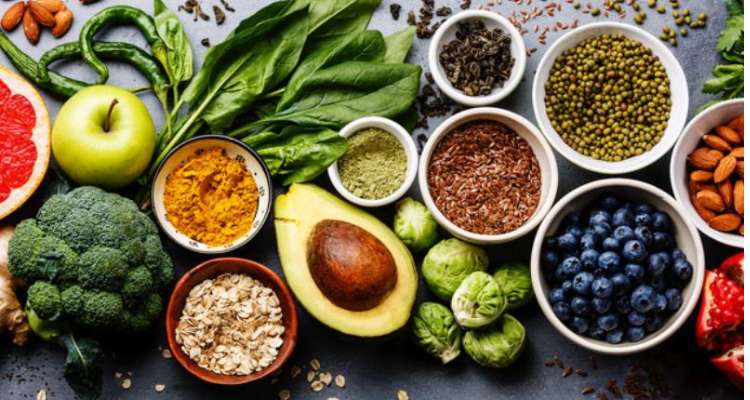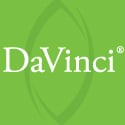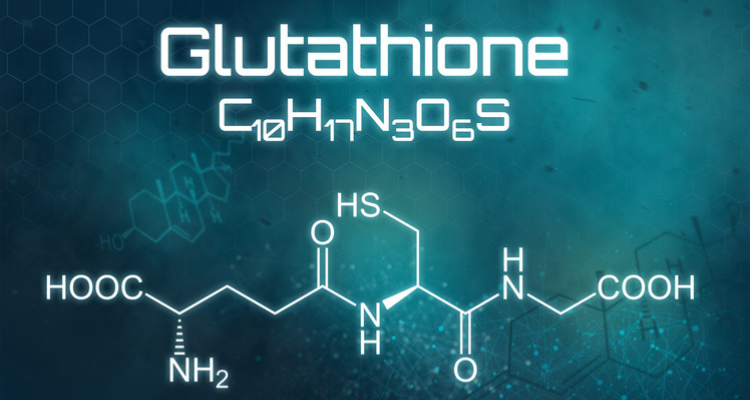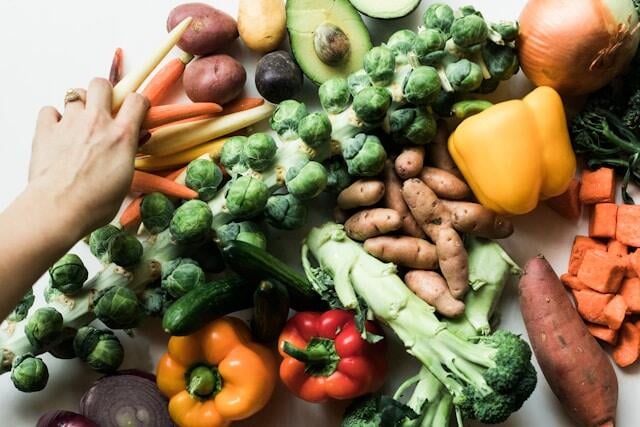
In recent years, antioxidants have been central to conversations about wellness. But what are they, exactly?
Antioxidants are natural compounds required by every cell in the body for optimal function and total body health. They are foundational for protecting cells and tissues from damage. Because integrative medicine focuses on prevention, antioxidants are an essential tool for optimizing wellness with an integrative approach.
This article will walk you through what antioxidants are, how their protective benefits work, and tips to consume more through diet and supplementation.
What are Antioxidants?
To understand antioxidants, we need to understand free radicals. Free radicals are unstable molecules, which means they don’t have a complete set of electrons and, as a result, try to “steal” electrons from other molecules. In the body, they steal from cell membranes, damaging cells.
Antioxidants protect cells by willingly donating their electrons to the free radical. The free radical becomes stable and can’t cause damage. The antioxidants regenerate to provide further protection.
Adding lemon juice to a cut apple prevents it from browning. In the body, antioxidants do the same thing.
An antioxidant isn’t a single substance or compound. Instead, antioxidants are a group of different compounds that provide free radical protection. In other words, these compounds have antioxidant effects.
Examples of antioxidants include:
- Vitamins – vitamin C, vitamin A, vitamin E
- Minerals – selenium, zinc
- Glutathione
- N-acetyl cysteine (NAC)
- Beta-carotene and other carotenoids
- Alpha lipoic acid
- Sulforaphane
- Polyphenols
- Polyphenols are a large category of phytonutrients (plant nutrients), including flavanols, flavones, flavanones, flavan-3-ols, isoflavones, and anthocyanidins.[1] Examples of powerful antioxidant polyphenols include:
- Quercetin
- Kaempferol
- Rutin
- Hesperidin
- Catechins
- Isoflavones (phytoestrogens)
- Curcumin
- Resveratrol
Antioxidant compounds obtained through diet and supplementation counteract daily free radical exposures. While normal metabolism produces some free radicals, the environment increasingly exposes us to more.

The following environmental factors contribute to oxidative stress and free radical production:
- Standard American diet high in refined sugar and inflammatory oils
- Over-exercise
- High stress
- Radiation and UV radiation
- Cigarette smoke
- Chemicals and toxins, including pesticides and plastics
- Air and water pollution[2]
eight benefits of antioxidants
Antioxidants are critical for reducing oxidative stress in the body’s cells, and they offer many advantages when it comes to wellness.
Antioxidant benefits include:
- Skin health – Antioxidants, including vitamins C and E, protect the skin from sun damage and toxins and support the aging process.2 This is why you see antioxidants in skin care products.
- Normal cell growth – Antioxidants help inhibit abnormal cell growth.
- Heart health – Antioxidants protect the heart muscle from damage. High antioxidant levels in the Mediterranean diet, including resveratrol in red grapes and wine, are considered “heart healthy.”1
- Brain and nerve health – Antioxidants support brain health and prevent the changes in brain function associated with aging. They keep nerves healthy and firing over time.
- Improved energy – Cellular energy production produces free radicals. Antioxidants protect the mitochondria in cells so they can produce energy efficiently.
- Vision – Carotenoids, including lutein and zeaxanthin, support normal vision.[3]
- Fertility– Antioxidants protect human eggs and sperm from DNA damage.[4] [5]
- Immune health – Vitamin C, zinc, and other antioxidants are known for their immune support benefits.
Overall, antioxidants are foundational for wellness, longevity, and healthy aging.
antioxidant-rich foods
When it comes to preventing poor health outcomes, diet is one of the most powerful tools. A food-as-medicine approach to health relies on the power of antioxidants we obtain from our diet.
While we can get zinc and other minerals from animal foods, most antioxidants come from plants. Nature offers an abundance of antioxidants through colorful fruits, vegetables, legumes, nuts, seeds, whole grains, herbs, spices, and teas.
Top antioxidant foods include:
- Dark leafy green vegetables – spinach, kale, collard greens, broccoli sprouts
- Orange fruits and vegetables – sweet potatoes, carrots, orange bell peppers, oranges
- Purple fruits and vegetables – blueberries, blackberries, purple cabbage
- Red fruits and vegetables – strawberries, pomegranates, red grapes, radishes, tomatoes, beets
- Yellow fruits and vegetables – sweet corn, yellow carrots, yellow bell peppers
- White fruits and vegetables – onions, garlic, turnips
- Buckwheat
- Turmeric
- Green tea
- Coffee
- Olives and extra virgin olive oil
- Rosemary, thyme, sage, and mint
- Grapefruit, lemons, limes
- Soy
- Flaxseeds
- Rooibos tea
- Medicinal herbs – red clover, passionflower
- Dark chocolate
- Artichokes
Some studies demonstrate increased antioxidant levels in organic produce compared to conventional.[6] In addition, organic produce is remarkably lower in pesticides and other agricultural chemicals that contribute to free radical damage.
boosting antioxidants with supplements
Eating a variety of nutrient-dense, colorful plant foods provides a foundation for antioxidant protection. Still, some of us may need more antioxidants because we may have increased needs due to stress, health changes, or environmental exposures.
In these cases, supplementation helps provide additional antioxidants that can target each person’s unique needs.
The most common and valuable antioxidants you’ll find in supplements include:
Antioxidant supplements provide free radical protection. They can be taken individually or combined for optimal benefit. Please discuss antioxidant supplements with your naturopathic doctor for personalized guidance.
takeaway
Antioxidants are vital for prevention and optimal aging. Luckily, nature provides abundant vitamins, minerals, and phytonutrients that protect cells from free radicals. We can obtain many of these through a whole food, plant-rich diet, and supplement during times of greater need.

[1] Ullah A, Munir S, Badshah SL, et al. Important Flavonoids and Their Role as a Therapeutic Agent. Molecules. 2020;25(22):5243. Published 2020 Nov 11. doi:10.3390/molecules25225243 PMID: 33187049; PMCID: PMC7697716.
[2] Michalak M. Plant-Derived Antioxidants: Significance in Skin Health and the Ageing Process. Int J Mol Sci. 2022;23(2):585. Published 2022 Jan 6. doi:10.3390/ijms23020585. PMID: 35054770; PMCID: PMC8776015.
[3] Bernstein PS, Li B, Vachali PP, et al. Lutein, zeaxanthin, and meso-zeaxanthin: The basic and clinical science underlying carotenoid-based nutritional interventions against…. Prog Retin Eye Res. 2016;50:34-66. doi:10.1016/j.preteyeres.2015.10.003. PMID: 26541886; PMCID: PMC4698241.
[4] Showell MG, Mackenzie-Proctor R, Jordan V, Hart RJ. Antioxidants for female subfertility. Cochrane Database Syst Rev. 2020;8(8):CD007807. Published 2020 Aug 27. doi:10.1002/14651858.CD007807.pub4. PMID: 32851663; PMCID: PMC8094745.
[5] Smits RM, Mackenzie-Proctor R, Yazdani A, Stankiewicz MT, Jordan V, Showell MG. Antioxidants for male subfertility. Cochrane Database Syst Rev. 2019;3(3):CD007411. Published 2019 Mar 14. doi:10.1002/14651858.CD007411.pub4. PMID: 30866036; PMCID: PMC6416049.
[6] Kopczyńska K, Kazimierczak R, Średnicka-Tober D, et al. The Profile of Selected Antioxidants in Two Courgette Varieties from Organic and Conventional Production. Antioxidants (Basel). 2020;9(5):404. Published 2020 May 9. doi:10.3390/antiox9050404. PMID: 32397495; PMCID: PMC7278829.


















